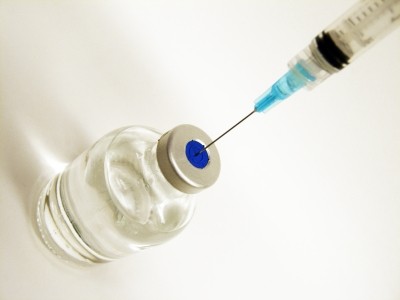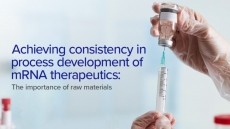Merck & Co. to discover 'smaller antibodies' in potential €1.7bn deal

Merck (known as MSD outside North America) originally signed a deal with Belgium-based firm Ablynx in 2012 to use its nanobody platform to discover and develop therapeutics in neuroscience, and this extended collaboration will provide a number of potential targets for the development of cancer immunotherapies.
Nanobodies
Single-domain antibodies - called nanobodies by Ablynx which holds exclusive rights to the technology for healthcare applications - are able to bind to specific antigens, similarly to antibodies, but are just a fraction of the size, Ablynx CEO Edwin Moses explained.
“The key advantages compared to other platforms are the size of the nanobody constructs,” he told Biopharma-Reporter.com.
At one tenth the size of a typical antibody, they can lead to better penetration and more flexible formatting, which allows the linking of different nanobodies together more easily to form combination drugs in one molecule.
He continued, adding a further advantage was the ability to deliver such drugs not just by injection but also by other routes, including by inhalation, through the eye and topically.
“Nanobodies happen to be particularly robust proteins and so can remain active when nebulized and delivered through an inhaler (unlike normal antibodies) and can be stable for longer periods in creams for topical use or when delivered directly into the eye.”
Working with Big BioPharma
Merck will pay Ablynx €20m ($27m) up front with a further €10.7m in research funding during the first three years of the collaboration. However, depending on development, regulatory and commercial milestone payments Ablynx says it could receive up to €1.7bn from the Biopharma Giant.
“We believe Merck chose us because of the power of the platform,” Moses told us, “in particular the formatting flexibility and the speed of nanobody generation. They were also impressed with our people, having already worked with us on one neuroscience project against a very challenging ion channel target.”
Ablynx also has ongoing contracts with Merck Serono and Abbvie.
‘Smaller Antibody’ platform
Camelides - camels, llamas, alpacas etc – are used in the production of nanobodies , according to Moses. They “produce heavy chain only antibodies against antigens rather just the classical heavy-light chain pairings. [Ablynx] cleave the variable region of these heavy chain antibodies to essentially make ‘smaller antibodies.’”
He continued: “We simply immunize 2-3 llamas with the antigen of interest e.g. a checkpoint inhibitor and within a couple of months we take a blood sample from the llamas and it will contain heavy chain only antibodies against the target.
“We then cleave the variable region, construct our potential drug product (often by linking nanobodies together) and then clone this into a micro-organism where we manufacture it.”






















